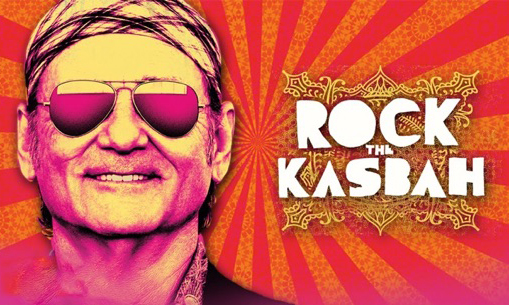
In Rock the Kasbah, a short and not-so great movie with an all-star cast, Richie Lanz (played by Bill Murray) is a downtrodden music manager who takes his one client to Afghanistan to try her musical luck. In one of my favorite scenes in the after-credits, Lanz negotiates the purchase of a stuffed animal with a street vendor who doesn’t speak English and who offers him colored string instead. Lanz’s response to this opening volley? “Do I look like a guy who uses string?”
This can be us. We negotiate every day. Whether the stakes involve a multimillion-dollar merger, a follow-on financing round, a salary boost at work, or a toddler who refuses to try anything green, we’re navigating the oldest of human conditions: finding a way to get what we want.
In many years of M&A lawyering, I’ve come to know that the most effective negotiations start with careful preparation, thoughtful positioning, and a studied focus on the other side. What do they want you to do and equally important, what do they need you to know? After making my way through some recent business books these past few weeks, I’m definitely more inclined to keep this in mind.
Every negotiation is different and that’s especially so when it’s global, in whole or in part. Lanz hilariously learns that the hard way when he discovers a young Afghan girl with an amazing voice who, by local custom and practice, isn’t allowed to sing. A guy like Lanz needs to read Protocol: The Power of Diplomacy and How to Make it Work for You, the fascinating new book by Capricia Penavic Marshall, former U.S chief of protocol for the Obama administration. Marshall coordinated the details of countless state visits and treaty negotiations, many of which could have been upended by a flag turned the wrong way, a wrong-colored shirt, unpolished shoes, or a beautiful but culturally insensitive gift. (The auspicious No. 8 figures prominently in an exchange with the Chinese Premier.) For Marshall, the mind-set of diplomacy should be a mind-set for negotiation — and knowing the history, style and customs of the other side can mean the difference between an eventual “yes” and an immediate “no.”
Of course, like Richie Lanz, too many negotiators skip the hard work of learning and listening. After all, sometimes you already know what the other side is going to say, right? Think again, and read Blindsight, The (Mostly) Hidden Ways Marketing Reshapes Our Brains, the engaging new book by neuroscientist Matt Johnson and Prince Ghuman, consumer marketing guru and neuromarketing expert, about how our own expectations can shape the message we are hearing. I loved the countless, entertaining examples of how shapes, colors and smells can influence decisions around pricing, product development and marketing. Yes, in a blind test, if people believe they are drinking more expensive wine, their experience is more enjoyable and they’ll even describe wine from the same bottle: white and red (the same white with red food coloring) quite differently as their perception shapes their reality. We all instinctively engage in this “thin-slicing,” snap judgments based on quick impressions, and the best negotiators know that all too well.
Just ask former FBI hostage negotiator Chris Voss, author of Never Split the Difference: Negotiating As If Your Life Depended On It, an incredibly useful and quick read on the basic psychological tactics of “mirroring,” reciprocity, anchors and loss aversion, all foundational to one of Voss’ basic themes. The other side needs to know that YOU know their story before cutting a deal. Voss has clearly “seen it all,” and I’d certainly like to have him along for my next trip to the car dealership. Entrepreneurial Negotiation, by Harvard negotiator/instructors Samuel Dinnar and Lawrence Susskind, a terrific book I’ve recommended in the past, would be a great companion read on the overall topic.
Some people are born negotiators who relish the art of the deal. Richie Lanz is one of those, and watching him try to cut percentage deals with warlords, merchants and a sex-worker-with-a-heart-of-gold (Kate Hudson) is predictable fun in a romantic comedy. For the rest of us, negotiating has important, real-life implications. If we can learn to be better at it, we can easily end up with more than colored string.
Authors & Innovators is an occasional column by Larry Gennari, a transactional lawyer, law professor, and chief curator of Authors & Innovators, an annual business book and ideas festival. Gennari also teaches Project Entrepreneur, a business fundamentals bootcamp for returning citizens, at BC Law School.




